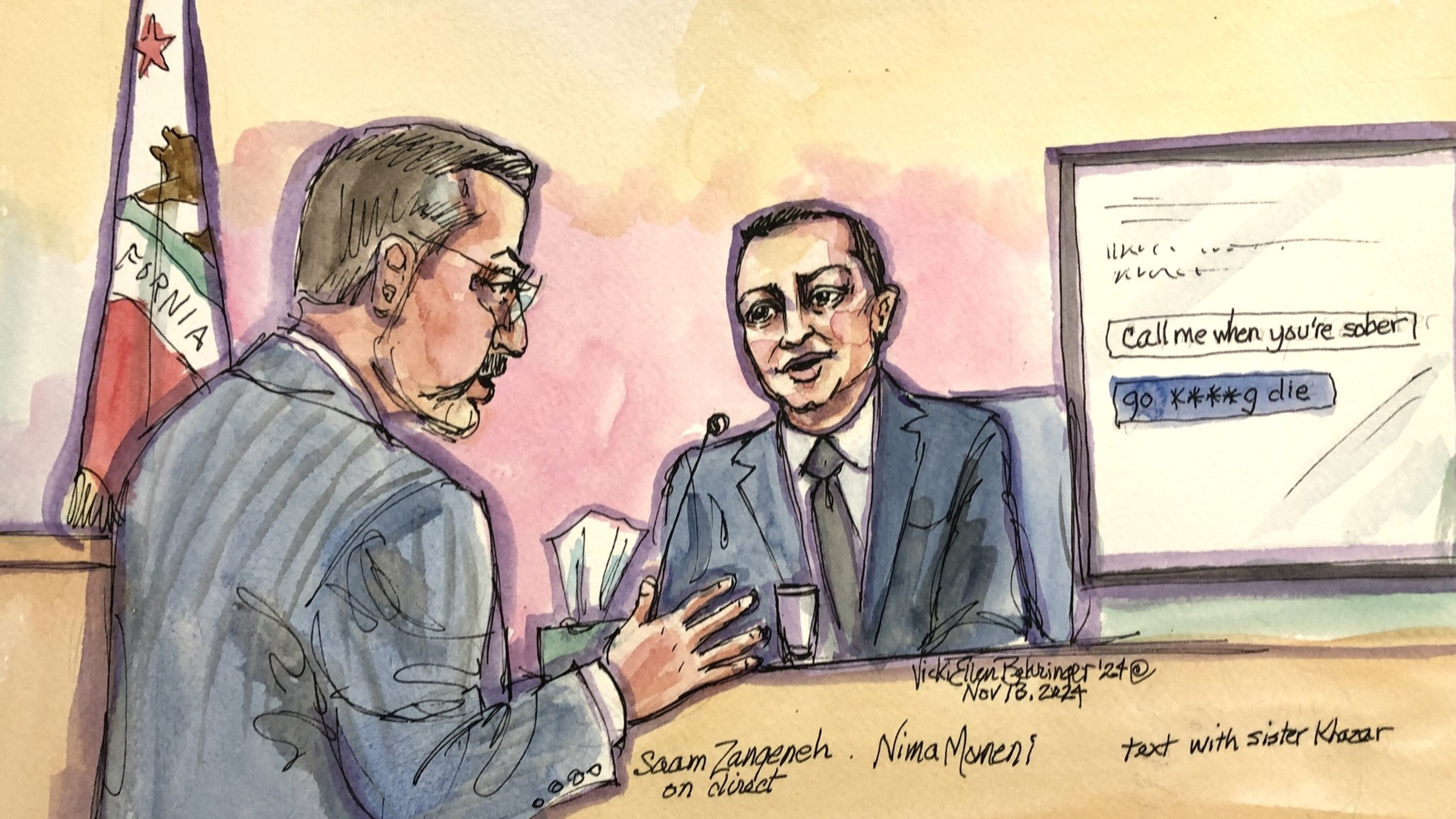For two days last week, accused murderer Nima Momeni took the stand and told the jury a story the public has waited 19 months to hear: his version of what happened April 3, 2023, in his BMW under the Bay Bridge.
Momeni — the only eyewitness to the last moments of Bob Lee’s life — told a simple story. He said he didn’t fatally stab the tech executive, as he is accused. Instead, Lee attacked him.
“I was afraid for my life, and I didn’t know what he was going to do,” he testified of the critical moments in which, he claimed, Lee drew a kitchen knife out of his jacket pocket and Momeni fought him off, leaving Lee fatally wounded.
It’s an obvious defense, and, in Momeni’s telling, a strange one. Lee was stabbed not once but three times, a fact Momeni — who said he didn’t realize the tech executive had been wounded in the skirmish — didn’t try to explain.
Then there’s Momeni’s behavior afterward — stashing his evidence-filled car at this mother’s house, neglecting to tell his sister what had happened, lawyering up, rather than going to police, when he learned of Lee’s death.
But for all that, it was convincing, or at least satisfying in a way the prosecution’s explanation of what went down never quite achieved. Momeni was able to supply answers, however curious, while prosecutors could offer only conjecture. And in a contest of two stories, neither of which quite adds up, that may be enough for a jury.
For nearly two years, the figure of Momeni has hovered on the outskirts of his own long-awaited trial, painted in press accounts and in the trial’s opening days as a protective brother, a partier, a weapons enthusiast. When his time came to testify, he came across as both more human and more calculating than expected.
Momeni took the stand Wednesday in a navy-blue suit, visibly nervous but ready for his attorney’s questions. His delicate Farsi accent contrasted with his hulking figure.
His mother sat in the front row of the courtroom, listening intently. The family of his alleged victim sat across the aisle, getting their first chance to hear from the man they believe killed Lee.
The first pillar of the D.A.’s case against Momeni was that he was motivated to kill Lee in revenge for an alleged sexual assault on his sister. Momeni said that by 9 p.m. the night before the killing, he had talked to everyone involved and came to the conclusion that his sister had not been assaulted.
Instead, Momeni supplied a motive for Lee to have attacked him. Momeni claimed that Lee attacked him after he told “a bad joke” — saying Lee should be at home with his family instead of out at strip clubs. As a provocation for a knife attack, it seems bizarrely slender. Then again, Lee was coming off a multi-day drug bender, and, if Momeni is to be believed, showed up packing a knife.
There were other gaps and curiosities — including Momeni’s claim that he tossed the knife over a fence in a panic — but fragmentary recall of a chaotic late-night event is hardly unusual.
Momeni did offer explanations for several outstanding questions. He said he believed texts from his sister in which she suspected that something violent had happened were about Lee attacking him, not the reverse. He said he left his car at his mother’s due to a broken window, not to hide evidence.
He said he didn’t know Lee had been stabbed until he found out about the death a day later, and never speculated or worried that his fight had led to Lee’s death.
In the end, he did what the prosecution struggled to do: told a story about what happened that morning in April 2023. That story, while attacked by the prosecution as a fiction to fit the facts, may well be the narrative on which the trial rests.
